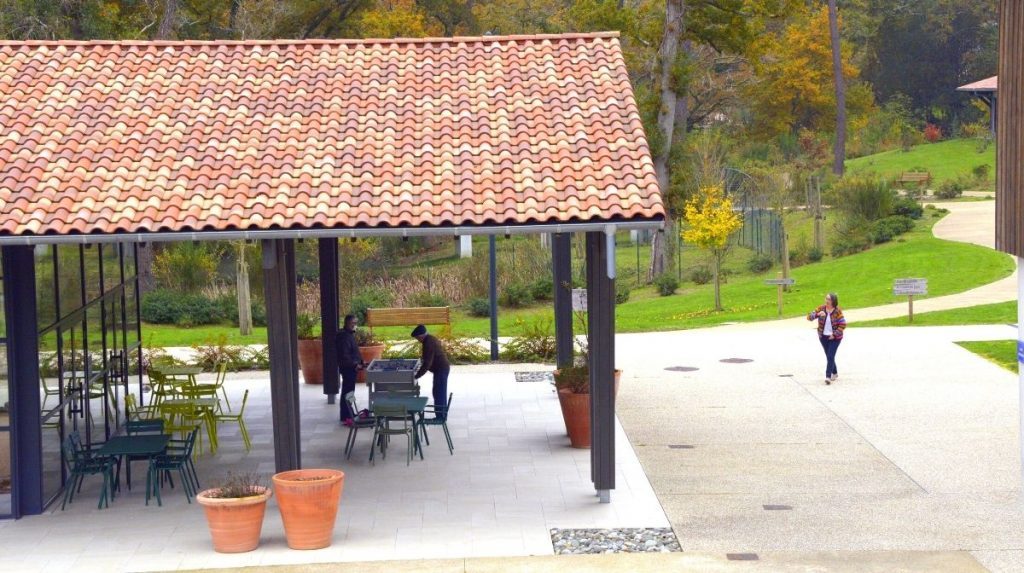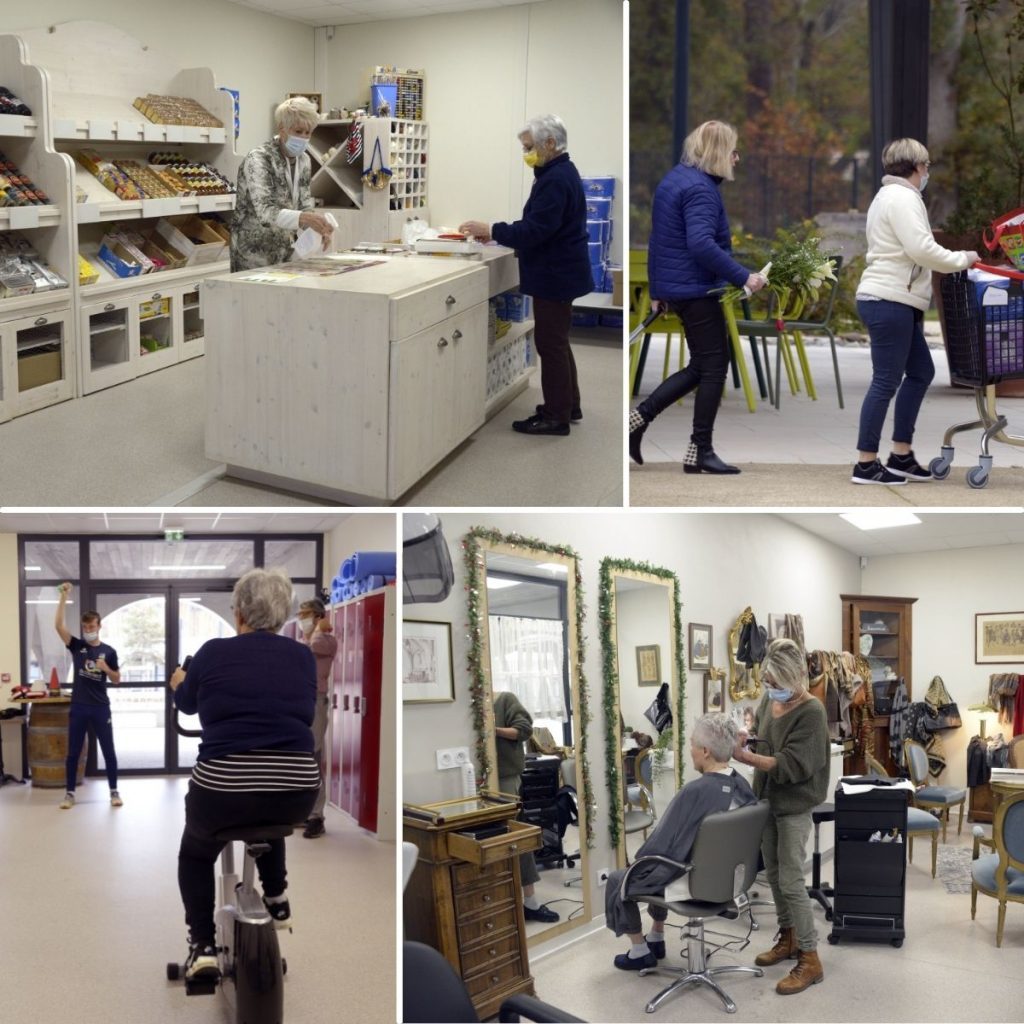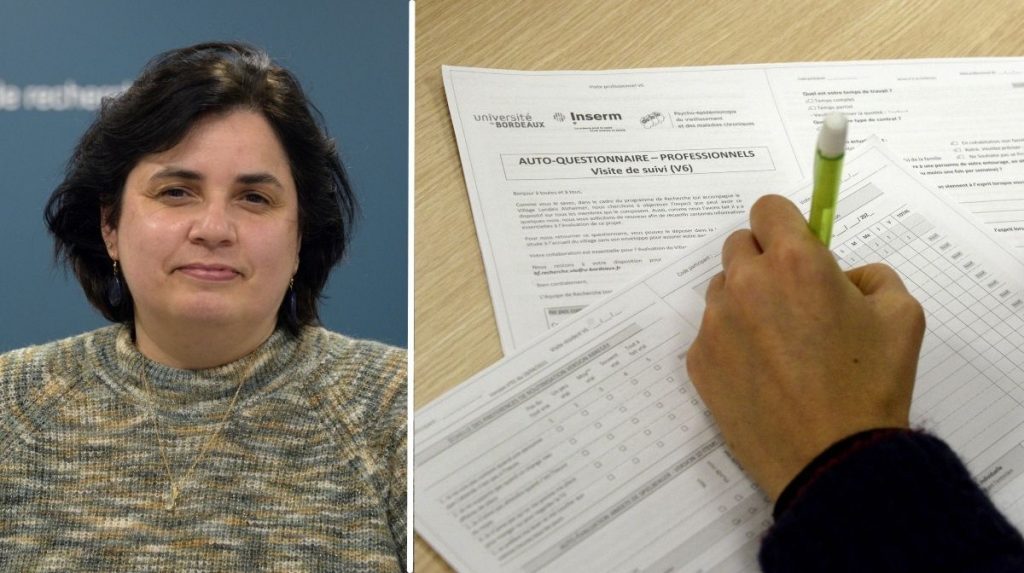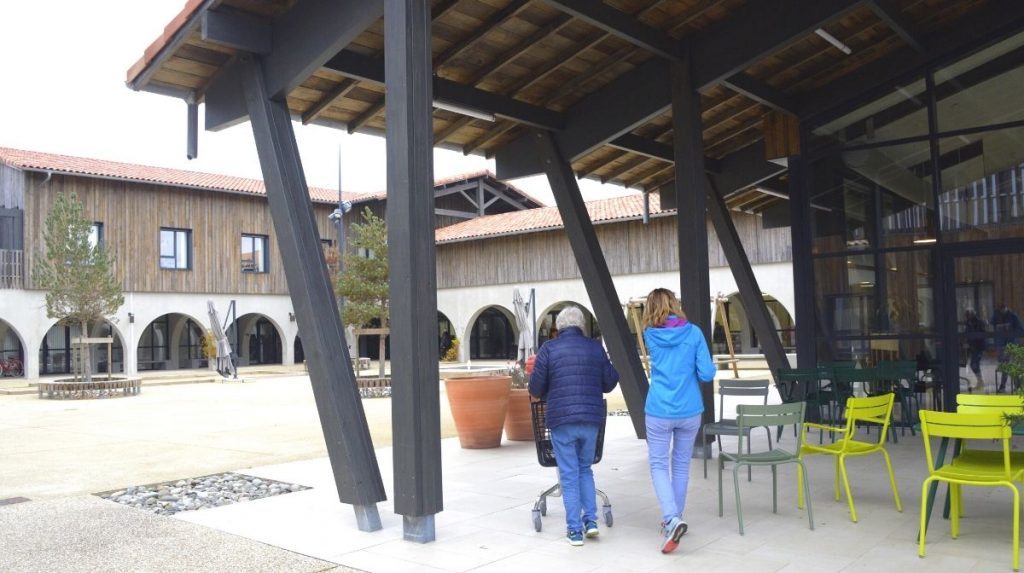Alzheimer’s: Discovering an Experimental Village
A gentle wind blowing through the trees, the smell of fresh coffee wafting through the air, the sound of a swing creaking in the village square, a donkey braying in the distance… This simple and everyday setting is actually anything but! We are in the heart of the Village Landais, a pioneering scientific project that aims to innovate in social life, health, and research. Inspired by a project began in the nineties in Hogeweyk, the Netherlands, it is one of the few Alzheimer’s villages worldwide.

Initiated and driven by the Landes Department Council with the support of the Nouvelle-Aquitaine Regional Health Agency (ARS), the Village Landais Alzheimer has been designed both architecturally and functionally to provide appropriate and respectful care for people with cognitive disorders. Since June 11, 2020, it has welcomed 120 villagers of all ages to its alternative, support-focused environment that is free of the signs and symbols of medicalization. The goal? Offer the most normal life possible to people with Alzheimer’s. But does this initiative really differ from conventional nursing homes? How does it affect patient well-being, symptoms, and outcomes? Does it also benefit caregivers? This is what Hélène Amieva*, psycho-epidemiologist at the Bordeaux Population Health Research Center of Bordeaux University, wants to determine. Because despite the village’s appearance, the research community is paying close attention.

The Village Landais is a unique experiment in France, in which patients are taken out of the medicalized and sanitized context of the nursing home and returned to an environment where places, interactions and events are ordinary. « The originality of the project lies in the village itself,“ explains Amieva. There are residential neighborhoods, but also shops, a brasserie, a media library, a village square, as well as a landscaped park for residents and their visitors. In the morning, the villagers buy something to prepare their midday meal, they eat together, have coffee on the terrace, forge links. They live a semblance of normal life, even though they are losing their autonomy. « Here, despite the omnipresence of the disease with its attendant cognitive and behavioral disorders, and despite the constant vigilance of the medical staff, the setting has nothing in common with the organization of a nursing home,“ explains the researcher.
The village is part of a national initiative, cemented by France’s 2020–2022 Aging in Good Health global strategy presented by Agnès Buzyn in January 2020. The aim is to improve patient and caregiver well-being and quality of life, whilst preserving where possible the residents’ cognitive and practical abilities. Doctors, nurses, psychologists, facilitators, and gerontologists support the villagers in their daily lives... but they are not the only ones. There are also many volunteers. Volunteering is a key element of the village! Although the volunteers do not replace the employees, they still play an essential role in running group activities, increasing the choice available to the villagers: physical, artistic and creative activities, gardening, cultural installations, readings...

Although the setting and the staff evoke positive reactions, is the Village Landais Alzheimer really an alternative model to the nursing home? Is it viable and reproducible, and does it really enhance the villagers’ quality of life, social participation, and health? This is the question that researchers from Amieva’s Bordeaux team, specializing in the epidemiology of aging and chronic diseases, wish to answer. The researcher and her team were approached by the Landes department with the approval of the Nouvelle-Aquitaine ARS. « We are interested in the psychosocial factors that modulate and determine the trajectories of aging, and the diseases associated with it. We also wonder to what extent innovative psychosocial interventions help slow loss of autonomy in elderly people, she explains. Currently, we are evaluating the actual effects of the village on people who are losing autonomy, and the validity of the care. ”

In order to evaluate the village but also to make it reproducible on a national or even international scale, several lines of research were chosen: social participation of the villagers, occupational stress of the professionals, feelings of guilt experienced by the residents’ families for having placed them in the village, and their maintenance of ties with them. For this, psychological, cognitive, social, and physical health indicators are regularly recorded. The social perception of Alzheimer’s disease is also analyzed. Indeed, old age and illness have extremely negative representations in our societies. A survey was conducted among the general public to assess the image conveyed by the village, compared with traditional establishments. « Certain perceptions of Alzheimer’s disease, in particular the loss of identity, or the feeling of disgust towards sufferers are less present since the village opened. It has therefore had a modest but positive impact on the perceptions of the disease,“ smiles Amieva.
Part of the project, carried out in collaboration with health economists from the Bordeaux Population Health Center of the University of Bordeaux, is focused on the cost-effectiveness of the village to precisely quantify both the cost of care (direct and indirect), but also the possible benefits: some nursing-home admissions could be avoided with different patient monitoring. By following the villagers as closely as possible, it may be feasible to reduce certain drug prescriptions, certain hospitalizations, and the associated additional costs.
We will still have to wait before obtaining robust responses to the various questions raised by this radical change in the management of the disease. In particular, evaluating and comparing the benefits of this experimental village in comparison with a conventional nursing home will require a lengthy period of monitoring and observation. The results are eagerly awaited, given what is at stake: reducing the burden of a dreaded disease, in a gentler and more pleasant setting.
Note:
*unit 1219 Inserm/University of Bordeaux, Psychoepidemiology of Aging and Chronic Diseases (SEPIA) team, Bordeaux Population Health Research Center
